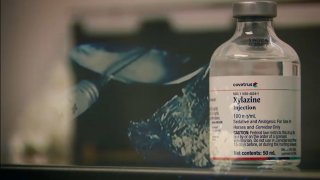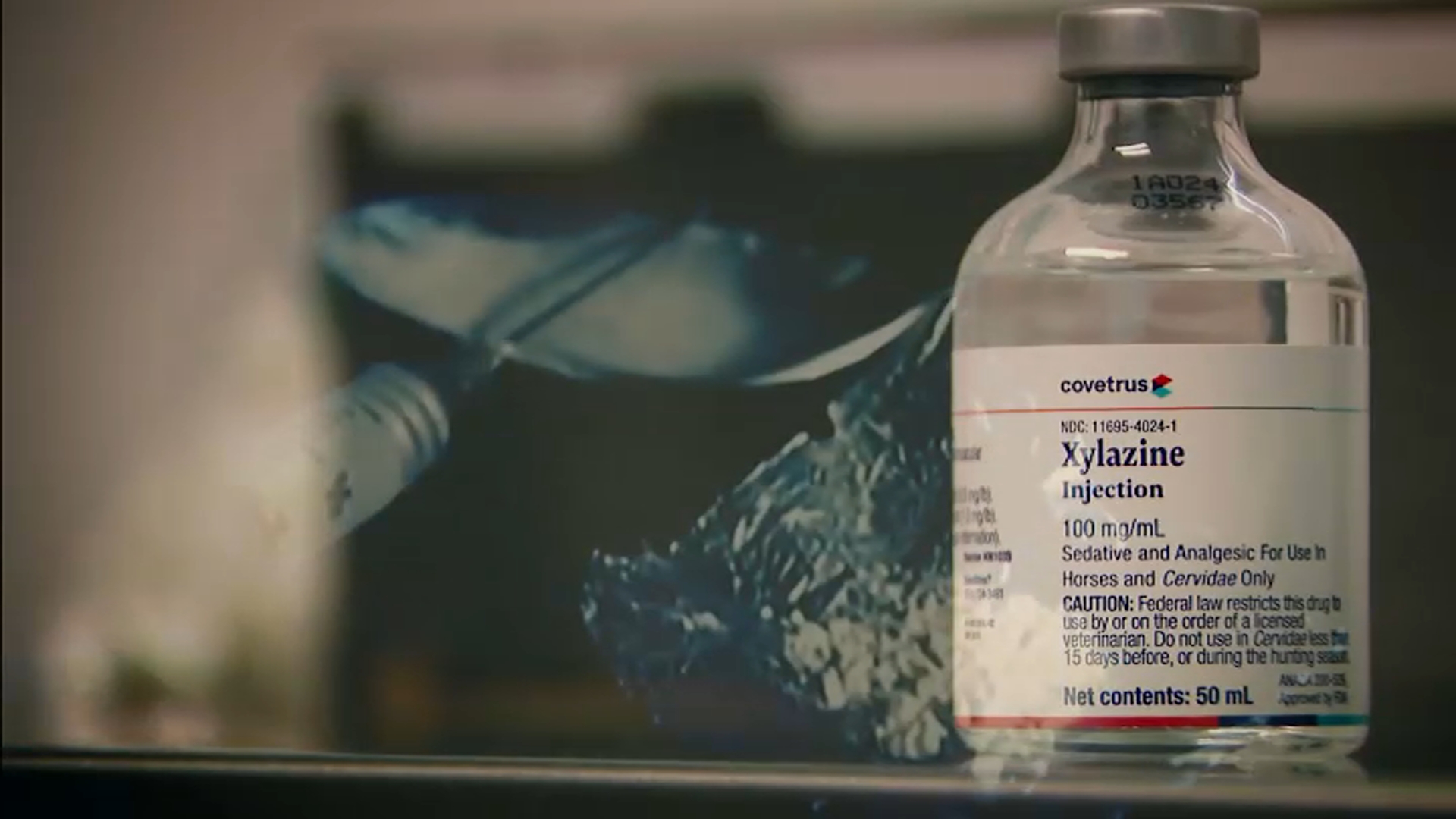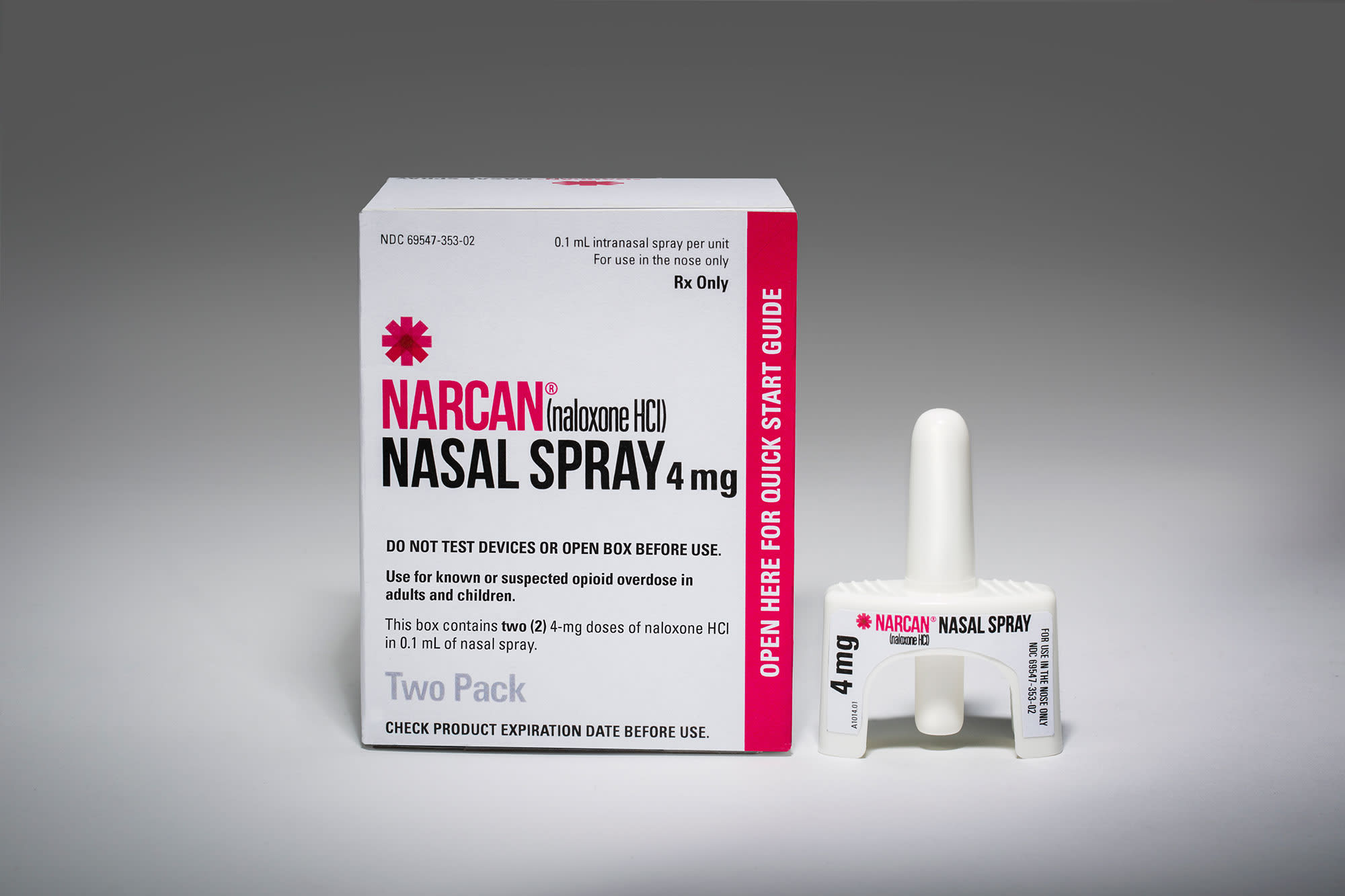
New Hampshire health officials are warning residents about an increasingly popular and possibly deadly animal tranquilizer being added to drugs like fentanyl and heroin.
Xylazine is used by veterinarians to sedate large animals, but health officials have been seeing it appear more often in the illicit drug supply. Also known as "tranq," xylazine isn't an opioid, but the New Hampshire Department of Health and Human Services noted that it carries risks, including causing skin ulcers and possibly fatal overdose.
"The increased presence of xylazine circulating in the Northeast is concerning," Dr. Jonathan Ballard, the agency's chief medical officer, said in a statement. "When added to opioid drugs like heroin and fentanyl, it may increase the risk of overdose and death."
The amount of xylazine detected by the Drug Enforcement Administration in the Northeast United States increased 61% between 2020 and 2021, while the number of overdose deaths in which the drug was detected more than doubled in the region over the same period.
Get Boston local news, weather forecasts, lifestyle and entertainment stories to your inbox. Sign up for NBC Boston’s newsletters.
In Massachusetts, xylazine was found in 80% of drug samples from western Massachusetts last spring, but by the summer he similar numbers were seen in samples statewide, according to Steven Murray, an overdose researcher at Boston Medical Center.
Most of what researchers about the xylazine comes from anecdotal evidence, with little scientific evidence about what it does to humans, he told NBC10 Boston last week.
"What we hear is that xylazine gives fentanyl legs, which means that it would extend the sort of duration of each time the person would use that they would feel something," Murray said.
Get updates on what's happening in Boston to your inbox. Sign up for our News Headlines newsletter.
Anyone in New Hampshire seeking help for substance use disorder can call 211 or visit thedoorway.nh.gov, the Department of Health and Human Services said, and noted that it's released information for health care providers on treating xylazine in people.
When someone is overdosing, bystanders should call 911 and administer naloxone, the agency said. Though the opioid-reversal treatment doesn't work on xylazine, it's often used with opioids, so it can still be helpful.
NBC10 Boston's Cory Smith and Jason Solowski contributed to this report.



